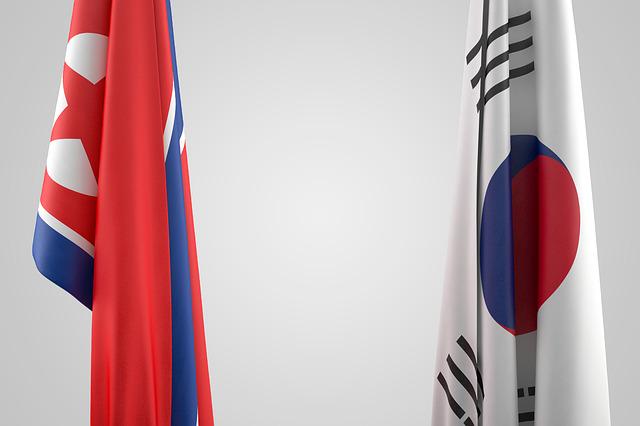Joy E. Yoon, daughter of American professors and a mother of five, gave a recent lecture titled "Power of Forgiveness on the Korean Peninsula."
For 17 years, Joy and her husband Stephen have served as Christian humanitarian workers in North Korea, raising their family there for 11 years. She is the co-founder of the nonprofit organization IGNIS Community, and one of a few Americans who has spent over ten years living inside North Korea. Together, they have primarily focused on serving children with developmental disabilities. They have authored two books on the North, including Discovering Joy: Ten Years in North Korea and Crossing the Divide: Learning to Love in North Korea.
Although a white American, Joy grew up in South Korea. "I'm white on the outside, but I'm more Asian on the inside." Struggling with an identity crisis, Joy called herself a "third culture" child.
At 15, she received the calling to go to North Korea, even though she knew nobody there. It was not until 15 years later that she was in North Korea to support her husband, Stephen, after becoming a mother of three.
"Once again, I came into an identity crisis because I had studied the Korean language, got ready for the ministry, but I was there, watching my husband doing the ministry and homeschooling the children," she said.
As she complained to the Lord, Joy was diagnosed with cancer. Through the treatment process, her life was shaped and humbled. Her value was based no longer on what she did, things that today's society cares about. "God was saying that it is about who you are," she recalled.
The couple carried out building hospitals and schools for children with disabilities. Their ministry has expanded into today's IGNIS Community, which emphasizes humanitarian outreach, social entrepreneurship, and medical treatment and education.
During their time in North Korea, her husband studied there to obtain a doctor's degree, which could guarantee a long stay in the country. "All North Korean PhDs are approved by top government officials," Joy explained in the book Crossing the Divide: Learning to Love in North Korea.
When it came to his graduation ceremony to "be held in the Supreme People's Assembly, where the North Korea legislature met, a place where no white American had been granted access to before," Joy was officially invited to attend it.
In North Korea, propaganda slogans and pictures at schools and clinics claim that the United States massacred their people during the war. So, she called it a privilege to attend such a ceremony.
According to the book, during the ceremony, Stephen received the award of doctorate in medicine from the hands of the vice prime minister of North Korea. Several doctors placed a medal around his neck and pinned him with the doctoral star.
After the ceremony, she felt the Holy Spirit humble her heart, and God told her that she should write a letter to ask for forgiveness. "God forgave us, so we are to send our forgiveness to others," she said, pointing to a cycle of victims and victimizers.
Citing mass murders of suspected Communists in South Korea, she said that the cycle of violence and conflict on the Korean Peninsula had already begun before the Korean War. Before the war even broke out, the vast majority of Christians in the Korean Peninsula lived in North Korea. They fled to the South during the war to avoid persecution. Many churches in the South were established by victims of the Communist government, and they, in turn, victimized North Korea in their minds as the enemy.
"It's a complex matter with the victimizer, then later on then becoming the victim. Victims subsequently lash out again and return to becoming the victimizer," she added.
She listed this as one of the spiritual strongholds of Korea: unforgiveness. Other spiritual strongholds include pride, fear, intimidation, lies, idolatry, division, abandonment, and despair. Each country has its own spiritual strongholds and needs the love of God.
Her letter read, "While growing up in South Korea, I fell in love with the Korean people. Over the years, this love began to grow and extend to North Koreans as well. I have wholeheartedly supported the work my husband has done here in North Korea. Throughout our time working in North Korea, I have learned much about the country. After visiting local schools, I have seen pictures of the atrocities the US has inflicted upon the North Korean people. Upon learning this, I have wept bitterly for the pain we have caused this country.
"I am just an ordinary citizen. I am nobody special. But as a US citizen, I would like to officially ask for your forgiveness for the pain America has caused this nation. My wish is that our countries would someday find reconciliation. And I thank you, from the bottom of my heart, for allowing me the opportunity to witness this special honor you have given my husband."
The letter was handed to a local guide, who commented on the letter, "so well-written," to North Korean officials. One of the officials cried and said, "Thank you so much, and you are always welcome in this country."
"It's not about me or necessarily the work I do. It's about what God wants to do through each one of us," Joy concluded. "God wants to use each of us the same way. In this way, we are each called to this ministry of reconciliation."











